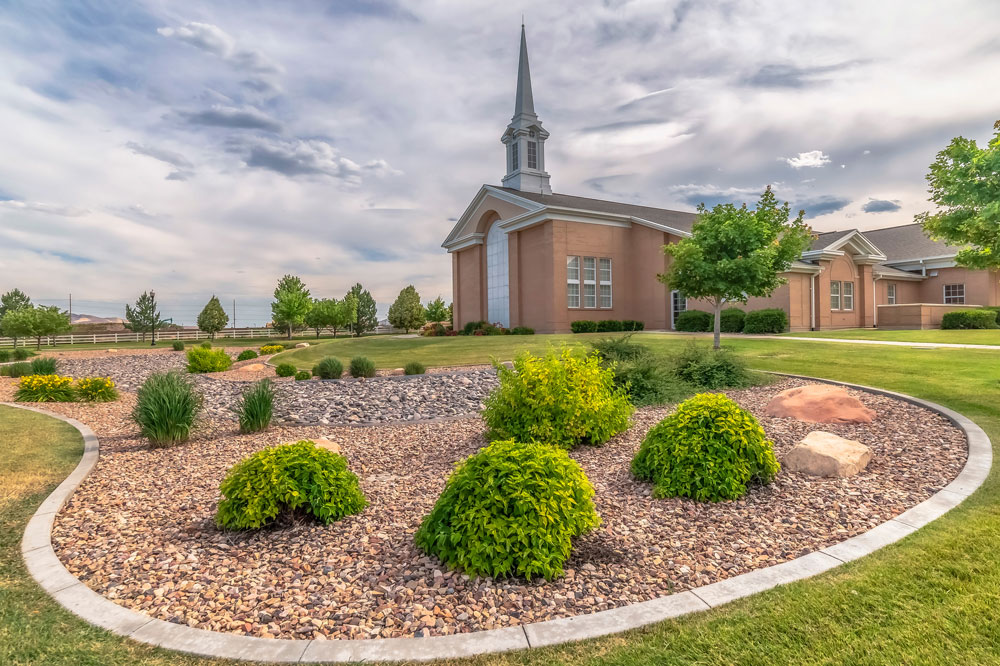- Introduction: SB 1454 and Its Triggers
- Senate Bill 1454 (effective January 1, 2025) removed the longstanding exemption for Nongovernmental Organizations (NGOs) / nonprofits, Charitable Organizations, and Houses of Worship under California’s security laws.
- SB 1454 amended the Proprietary Security Services Act to tie oversight to employees performing security functions explicitly.
- BPC § 7574.01(g): “Proprietary private security officer” means an unarmed individual who is employed exclusively by any one employer whose primary duty is to provide security services for their employer, whose services are not contracted to any other entity or person, and who is not exempt pursuant to Section 7582.2, and who meets both of the following criteria:
- (1) Is required to wear a distinctive uniform clearly identifying the individual as a security officer.
- (2) Is likely to interact with the public while performing their duties.
2. BSIS Position Statement
The Bureau of Security and Investigative Services (BSIS) has acknowledged that the current legislative framework contains interpretive ambiguities. In response, the agency is actively evaluating additional operational triggers and contextual factors that may fall within the scope of regulated activity under existing statutes, and BSIS retains discretion to interpret roles broadly.
- Armed personnel – Carrying firearms in a protective role, which requires PPO employment, a BSIS firearms permit, and compliance with CCW laws, per BPC § 7583.3(b.
- Employee status – Any individual formally employed or compensated to provide security services, per BPC § 7582.1(e).
- Governs services rendered “for consideration,” though the term “consideration” is not explicitly defined within the statute. In practice, consideration may encompass any form of compensation or benefit provided to a volunteer—such as uniforms (e.g., polo shirts), equipment, meals, or other tangible support—that could reasonably establish an employer-employee relationship under labor or regulatory standards, per BPC § 7582.1(a).
- The volunteer’s role, description and function may be subject to BSIS regulatory oversight if BSIS considers it to be aligned with security duties, a regulated activity.
- Volunteer status no longer automatically shields Houses of Worship from BSIS regulation.
- Oversight is triggered when volunteers perform statutory “security” functions—wearing uniforms, interacting with the public, or providing protective duties.
- The safest path is to treat volunteer safety teams as if regulated, with clear role definitions, training, and documentation.
3. Who is BSIS?
- The Bureau of Security and Investigative Services (BSIS) enforces California’s security laws under Business & Professions Code (BPC) §§ 7580–7583.
- BSIS oversees licensing and compliance for:
- Private Patrol Operators (PPOs) – licensed to provide or contract armed security services.
- Proprietary Security Employers (PSEs) – organizations employing unarmed PPSOs.
- Proprietary Private Security Officers (PPSOs) – unarmed, uniformed employees likely to interact with the public.
- Volunteers Without Uniforms or Employment
- Unpaid, Non-Uniformed Volunteers:
- Ushers, greeters, or parking attendants who do not present themselves as “security” are generally not regulated.
- Oversight is triggered when the role crosses into statutory security functions—such as acting as guards, detaining individuals, or carrying weapons.
- Overlap With Security Duties:
- Even without uniforms, if volunteers are assigned to act as de facto security guards, BSIS could argue they are functioning as unlicensed PPSOs or PPO employees.
- Liability exposure increases because insurers and courts may treat them as “security personnel” regardless of pay status.
5. SB 1454 Impact (2025 Onward)
- Exemption Removed: Nonprofits are no longer exempt from BSIS regulation.
- Volunteers: While SB 1454 primarily addresses employees, BSIS recommends treating volunteers the same as staff when they perform security-like duties.
- Best Practice: Provide volunteers with training, clear role definitions, and documentation to avoid being classified as unlicensed security officers.
6. Licensing & Employment Requirements
- Unarmed volunteers acting as “security” may fall under PPSO rules.
- Armed volunteers must comply with PPO requirements:
- Guard card
- Firearms permit
- PPO employment
- Insurance (BPC §§ 7583.3(b), 7582.1(e))
- Statute requires armed guards to be employees of a PPO or lawful business (BPC § 7582.1(e)).
7. Consequences of Volunteer-to-Employee Conversion
- Employing volunteers under a PPO = automatic BSIS oversight.
- Triggers labor law obligations: minimum wage, payroll taxes, employment compliance.
- Following BSIS advice may create the regulatory burdens nonprofits wish to avoid.
8. Risks of Non-Compliance
- Ignoring BSIS recommendations risks accusations of operating unlicensed security guards.
- Liability exposure increases, insurers and courts may treat volunteers as “security personnel” regardless of pay status.
9. Organizational Decision Points
Faith-based organizations must decide whether to:
- Argue volunteers ≠ employees → excluded from SB 1454.
- Argue volunteer roles resemble “security” but remain outside oversight since unpaid.
- Recognize BSIS may classify armed CCW volunteers as agents of the nonprofit.
- Employ/pay volunteers under a PPO → oversight automatic.
- Risk violation of BPC §§ 7582.1, 7583.3 if armed guards are not properly employed.
10. Challenges of Compliance
- Financial burdens include:
- Paying volunteers
- Employment compliance
- Insurance and licensing costs
11. Legal Strategy Context
- Narrow Interpretation Argument:
- Regulation applies only to services performed “for consideration” (BPC § 7582.1(a)).
- SB 1454’s use of the word “employee” strengthens the argument that true volunteers are exempt because they do not meet the employee trigger.
- Case Law & Legislative Notes: confirm “consideration” requires an exchange of value—without compensation, volunteer activity may fall outside statutory scope.
- Nonprofits should consult legal counsel to develop defensible positions based on the employee vs. volunteer distinction.
12. Practical Recommendations for Houses of Worship
- Define Roles Clearly: Label volunteer positions as “safety team,” “hospitality,” or “emergency response,” not “security.”
- Avoid Uniforms/Badges: Do not issue clothing or insignia that implies “security guard” status.
- Limit Authority: Volunteers should not detain, restrain, or carry weapons unless formally licensed.
- Training: Even if not required, provide de-escalation and trauma-informed safety training to strengthen defensibility.
- Documentation: Maintain written policies clarifying that volunteers are not “security guards” under BSIS definitions.
13. Key Statutory References
- BPC § 7582.1(a): Regulates services performed “for consideration.”
- BPC § 7582.1(e): Defines “security guard” as an employee of a PPO or lawful business.
- BPC § 7583.3(b): Requires permits for armed guards.
- BPC § 7574.01(g): Defines PPSO as anyone in uniform identified as “security,” likely to interact with the public.
- SB 1454 (2025): Removed nonprofit exemption; introduced “employee” as a key trigger for BSIS oversight.
14. Declaratory Relief and Legislative Advocacy Resources
To address statutory ambiguities and strengthen protections for faith-based security teams, it is recommended that appropriate resources be identified and engaged.
- The Pacific Justice Institute (PJI) is a nonprofit legal defense organization specializing in religious freedom, parental rights, and civil liberties. PJI can file suit in California seeking declaratory relief, asking the courts to clarify critical terms such as “public interface,” “armed,” and “volunteer versus employee” in the context of houses of worship.
- Alliance Defending Freedom, the world’s largest Christian legal advocacy group, can lobby Sacramento to introduce legislation modeled after Texas Senate Bill 694, which grants civil immunity to House of Worship security volunteers acting within the scope of their duties. Such an immunity bill would provide California congregations with similar legal protections, reducing liability risks while reinforcing the state’s interest in safeguarding religious gatherings.
- Collaboration with local denominational legal teams and interfaith coalitions can amplify these efforts by filing amicus briefs, supporting litigation, and educating lawmakers. This combined approach ensures that both judicial clarification and legislative reform are pursued, creating a defensible framework for houses of worship to operate safe, volunteer-led security ministries.
15. Summary
BSIS oversight is not automatically triggered for unpaid, non-uniformed volunteers. If volunteers are not employed, not in uniforms labeled “security,” and not publicly identified as security personnel, they generally fall outside direct BSIS regulation. However, once volunteers are assigned duties that mirror statutory security guard functions—such as deterring threats, controlling access, or interacting with the public in a protective role—the risk of falling under BSIS jurisdiction increases.
Volunteer status alone no longer guarantees exemption. Nonprofits may argue that unpaid volunteers are not “employees” and therefore remain outside SB 1454’s scope, but BSIS retains discretion to interpret roles broadly.
The safest path for nonprofits is to treat volunteer safety teams as if regulated—with clear role definitions, training, and documentation. Faith-based organizations must balance legal defensibility, liability exposure, financial burden, and mission priorities when structuring safety teams under the expanded oversight framework.
SB 1454 Oversight Decision Matrix
Swipe left on mobile to see the rest of the information in the table below.| Role / Status | Employee Trigger | Uniform Trigger | Public-Facing Trigger | Armed Trigger (PPO) | Oversight Outcome |
|---|---|---|---|---|---|
| Unpaid Volunteer (no uniform, not public-facing) | ❌ Not an employee | ❌ No uniform | ❌ No public duties | ❌ Not armed | Generally exempt – outside SB 1454 scope unless duties mirror security functions |
| Volunteer in “Safety” role (greeter, usher, parking) | ❌ Not an employee | ❌ No uniform | ✅ Public-facing (hospitality) | ❌ Not armed | Low risk – usually exempt, but BSIS could argue PPSO if duties resemble security |
| Volunteer labeled “Security” (uniformed, public-facing) | ❌ Not an employee | ✅ Uniform says “Security” | ✅ Public-facing | ❌ Not armed | PPSO classification – BSIS oversight applies even if unpaid |
| Paid/Contracted Individual (unarmed) | ✅ Employee | ❌ No uniform | ✅ Public-facing | ❌ Not armed | PSE/PPSO oversight – must register and comply with BSIS |
| Armed Volunteer (CCW, protective role) | ❌ Not an employee | ❌ No uniform | ✅ Public-facing | ✅ Armed | Violation risk – statute requires PPO employment; cannot serve armed without PPO |
| Armed Employee (paid guard) | ✅ Employee | ✅ Uniform | ✅ Public-facing | ✅ Armed | Full PPO oversight – guard card, firearms permit, PPO employment, insurance required |

